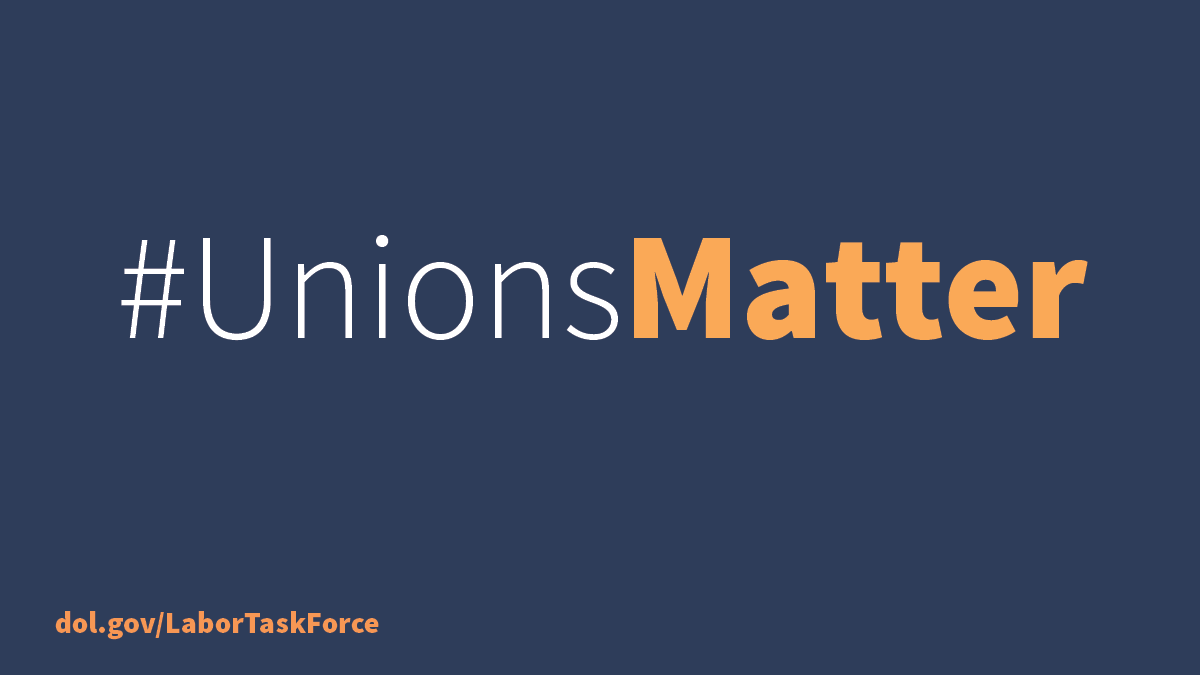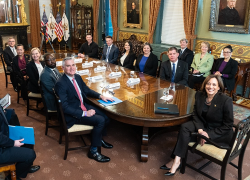
Today the White House released a report from the White House Task Force on Worker Organizing and Empowerment. This first-of-its kind report is the product of an intensive six-month effort by more than 20 Cabinet departments and White House agencies tasked with finding innovative ways to support worker organizing and collective bargaining.
This task force, established by President Biden’s executive order in April 2021, is the first time a president has asked the entire executive branch to use its power and programs to support and promote worker organizing. And it’s an effort that meets a moment: Worker interest in organizing is higher than it’s been in decades, with more than half of non-union workers saying they would vote to form a union if they had the chance. From Starbucks to Amazon to Hello Fresh to research assistants at the University of California, workers are organizing to bargain for better wages and working conditions, and the task force recommendations are designed to give these efforts a boost.
As someone who spent her career in the labor movement supporting worker organizing, I’ve interacted with multiple administrations on labor policy issues. But participating in the task force report process with Labor Secretary Walsh, who is vice-chair of the task force, has been uniquely fascinating and inspiring. It has been exciting to see agencies that have not previously had worker organizing and unions at the center of their priorities find creative ways to support this work.
Recommendations for action
The task force report contains close to 70 recommendations endorsed by President Biden for actions agencies across the government can take to empower workers. These include:
-
Reducing barriers to organizing: Under our current labor law, employers have unfettered access to run their anti-union campaigns at the workplace, including the ability to require workers to attend anti-union meetings without providing opportunities for pro-union workers or union organizers to share their views. To combat this information imbalance, the Department of Defense, the General Services Administration, and the Department of Interior will modify their policies to facilitate access by union organizers so they can communicate with private-sector workers on federal properties. And the Labor Department’s Office of Labor-Management Standards will take steps to require more disclosure by employers about the third-party consultants they routinely hire to run their anti-union campaigns.
-
Protecting workers who want to organize from illegal retaliation: Many workers trying to organize face illegal retaliation by employers when exercising their federally protected organizing rights. Charges of illegal retaliation are filed in 1 in 5 organizing campaigns. The Department of Labor is collaborating with the National Labor Relations Board and the Equal Employment Opportunity Commission to develop a strong, coordinated approach to address situations where workers face illegal retaliation from their employers.
-
Establishing a resource center on unions and collective bargaining: As one of its task force actions, the Department of Labor is establishing a resource center to provide workers, employers, policymakers and others with information on the importance of unions and collective bargaining to secure good wages and benefits, especially for women workers and workers of color.
These recommendations are just the beginning
The task force’s recommendations are no substitute for legislative actions to expand organizing protections to more workers, establish monetary penalties for employers that violate labor law and address other structural weaknesses in our laws. But they are a critical step toward supporting unions and worker organizing. Now the challenge is on all of us to quickly and aggressively implement these recommendations and help grow the labor movement. Because increasing union membership means a better quality of life for workers and their families, and a stronger economy for all.
Learn more about all the ways the department is supporting the task force here.
Lynn Rhinehart is a senior advisor in the department’s Office of Labor-Management Standards.

 U.S. Department of Labor Blog
U.S. Department of Labor Blog




